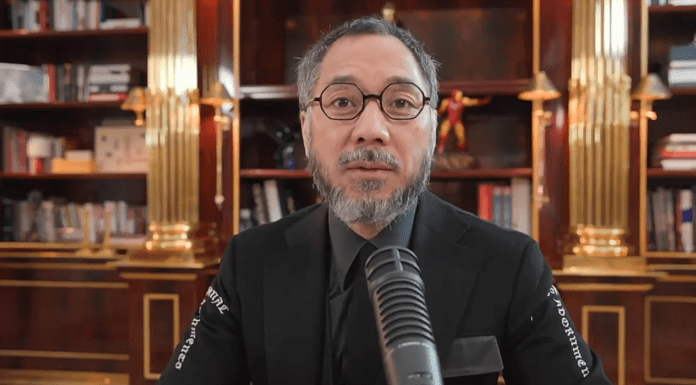(Karoline Leavitt, Headline USA contributor) The hack of Clark Hill law firm almost six years ago, which exposed the personal information and asylum application of political dissident Miles Guo, is a disturbing reminder of the lengths to which authoritarian regimes will go to silence dissent and suppress free speech.
Guo, a renowned critic of the Chinese Communist Party, is a colorful and highly effective figure within social media outlets, who has been outspoken on his views of the CCP and its human-rights abuses. In response, the CCP has targeted him with extensive misinformation campaigns and cyber-attacks.
Prior to engaging with Clark Hill, Guo had warned the firm about the requisite level of security necessary to protect his information. As a political dissident residing in New York, he had already experienced the reach of the CCP when protesters demonstrated outside his U.S. home and the government subjected him to targeted cyber-attacks.
He explicitly informed Clark Hill that they should similarly expect to be subjected to sophisticated cyber-attacks upon engagement. Despite these warnings, the firm was hacked, and no other clients’ information but Guo’s personal information, along with his asylum application, were exposed.
It is clear that the hack was executed by the CCP targeting Guo, and with no great difficulty, according to reports.
The CCP’s campaign to silence critics and suppress dissent has been well-documented, and this incident is just another example of their disregard for international norms and the rule of law. But it’s not just about Guo. This hack is a direct attack on the sanctity of asylum-seeking and the right to free speech.
By exposing Guo’s personal information and asylum application, the CCP has put him and his family in danger and sent a message to others who may be considering speaking out against the regime. The CCP’s actions are a direct assault on those values.
Following this disastrous turn of events, eyes began to turn to the involvement of the legal firm Guo had hired. That’s where the story heats up.
The recent ruling by the U.S. District Court for the District of Columbia in the case of Guo against the law firm Clark Hill is a significant development in the ongoing debate over cybersecurity and data protection.
As discussed, Guo had hired Clark Hill in 2016 to help him apply for asylum in the United States, citing threats and persecution from the Chinese Communist Party. However, the firm’s computer system was hacked in September 2017, and personal information about Guo and his wife, including the contents of the dissident’s asylum petition, were posted online.
Clark Hill subsequently withdrew from representing Guo, citing ethical rules that prohibit attorneys from playing the dual role of witness and advocate. However, strong questions remain that Clark Hill may have caved to pressure from the CCP and betrayed their client’s trust.
Clark Hill failed in their duty to uphold their clients interests. They caved to pressure from the CCP, and one has to wonder just how deep this pressure penetrated.
The court found that Guo had successfully pleaded that the alleged mishandling of his information and subsequent cyber attack resulted in damages.
This ruling is significant because it highlights the importance of cybersecurity and data protection, particularly in cases involving sensitive and confidential information.
It also underscores the potential legal consequences for firms that fail to adequately protect their clients’ information and the duty of care they owe to their clients.
Moreover, the ruling has broader implications for the legal industry and its obligations in relation to cybersecurity and data protection. Law firms hold vast amounts of sensitive and confidential information about their clients, making them attractive targets for cybercriminals, and illicit state actors.
Karoline Leavitt is a Newsmax contributor and the founder of KL Communications. In 2022, Karoline made history as the youngest U.S. Congressional Nominee ever, securing the nomination in New Hampshire’s 1st Congressional District at 25 years old. Prior to running for Congress, Karoline served as communications director to House Republican Chairwoman Elise Stefanik, and as White House assistant press secretary to President Donald Trump. Karoline is an alumna of Saint Anselm College in Manchester, New Hampshire.
Editor’s Note: The above piece is an opinion piece. Although Headline USA does curate and edit such pieces for style purposes, the views expressed in it do not necessarily represent those of the publication. Headline USA did not receive nor furnish any compensation for the submission.

